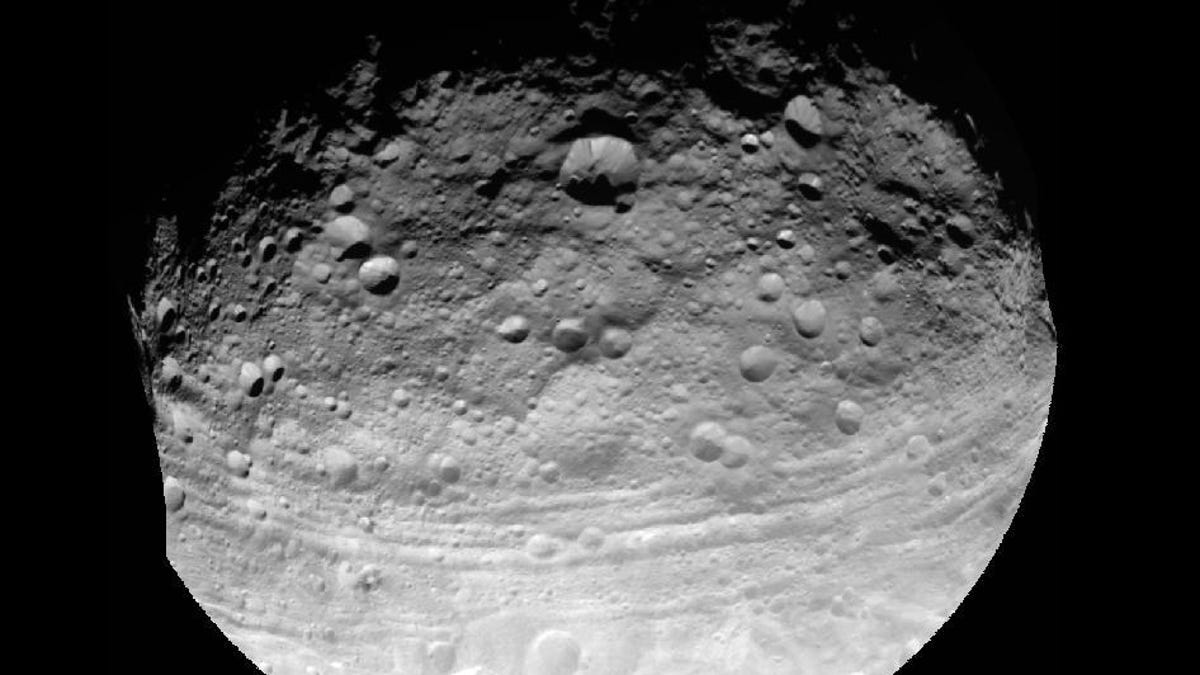Scientists live-tweet chilling faux asteroid impact scare
Will NASA and ESA be able to save Earth? Stay tuned to find out.
Asteroid 2019PDC now has a 1 in 100 chance of hitting Earth in 2027. Good thing it's fictional.
The world's top asteroid experts are gathering on Monday, April 29 at the 2019 Planetary Defense Conference in Washington DC. They're taking part in what sounds like an epic RPG: a hypothetical asteroid impact exercise that will test how Earth responds to the threat of a potentially devastating space rock.
NASA's Planetary Defense Coordination Office developed the exercise along with the US Federal Emergency Management Agency. "The point is to investigate how NEO observers, space agency officials, emergency managers, decision makers, and citizens might respond to an actual impact prediction and evolving information," NASA said.
The ESA Operations Twitter account is now live-tweeting the entire scenario, from the discovery of the asteroid (named 2019PDC) to the increasingly grim odds it might hit Earth. The first tweet sounds innocuous. It's a casual mention of international news reports confirming the asteroid's discovery.
International news reports confirm: An #asteroid was discovered on 26 March 2019, and named #2019PDC by the @IAU_org's Minor Planet Center located in Cambridge, Mass, USA #FICTIONALEVENT #PlanetaryDefense (Image credit Harvard-Smithsonian Center for Astrophysics CC-SA3.0) pic.twitter.com/03gV3Q4XNT
— ESA Operations (@esaoperations) April 26, 2019
The tension increases as the probability of an impact in 2027 ramps up and we discover the asteroid is 15 times bigger than the 2013 Chelyabinsk asteroid that exploded over Russia, injuring over 1,200 people and damaging buildings.
As observations continue, the likelihood of an Earth impact in 2027 is increasing. 3 weeks after discovery, after observations had to be paused during the full Moon (and reduced visibility), the chance of impact has risen to 1 in 250 #FICTIONALEVENT #planetarydefense pic.twitter.com/MlNd9VX06K
— ESA Operations (@esaoperations) April 26, 2019
The team is appending each tweet with the all-caps hashtag #FICTIONALEVENT so no one will freak out. It's still sobering to follow the events, which recently worsened from a 1 in 250 chance of impact to 1 in 100.
ESA Operations will continue to update the plot in the coming week. Participants will receive daily briefings and must role-play the responses from astronomers, space agencies and governments.
In reality, we know of no imminent threats from asteroids, but NASA is constantly tracking their movements through space.
What's most chilling about the fictional scenario is the real history of asteroid impacts on Earth. It's happened before, as the dinosaurs discovered to their detriment. It could happen again.
ESA's tweets are just as riveting as any sci-fi show. Follow along to find out if humanity survives.


